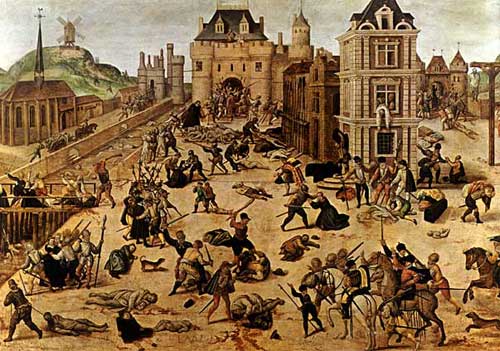15: Montaigne and his World
The New Learning, Reform and War in France
Ambroise Dubois (attrib), Apollo and Daphne
Major trends in the world of letters in 16th c France
- religous reformation
- political disorder: wars of religion
- spread of humanist movement
Montaigne as our example
- To what degree do the Essays relate to current events?
- To what degree do they reflect the spread of the new learning?
French Reforms and Reformation
Protestants: John Calvin (1509-64)
- Paris (university): “Affair of the Placards 1534
- 1536 Basel then Geneva
- Institutes first ed. 1536, last 1559
Calvinist reform:
Swiss cities, Rhineland, France, England, Scotland
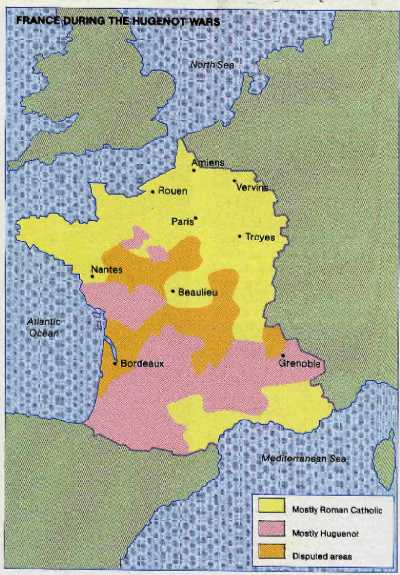
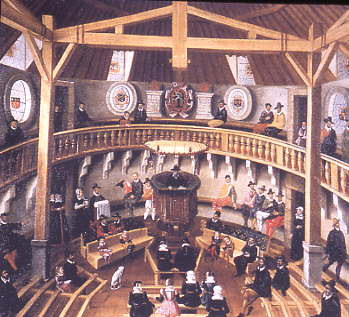
a Huguenot church in Lyon
Jean Perrissin, Le Temple de Paradis, v. 1565. ©Bibliothèque de Genève, exposé au MIR, Genève
Catholic Reform: first centered in Italy
Council of Trent: called 1542 met 1545-62
- first sessions doctrine
- later: centralized control standards
- reformed Mass, role of bishops, training of clergy
- 1564 and after: implementation, negotiation with rulers
Politics: Two half centuries
First half century: wars with Italy, strengthening monarchy
Second half of century: succession struggles, civil strife
Francis I (king 1515-47)
- patron of new learning
- Anti-Protestant responses:
- 1534 expelled Calvinists
- 1545 Attacks on Waldensians
Succeeded by son Henry II (king 1547-59)
- married Catherine de’ Medici
- Fatal injury celebrating end of Italian wars (History Today story)
- Left minor children: Catherine served as regent

Succeeded by son Francis II (minor, 14) (king 1559-60) married Mary Stuart (Mary Queen of Scots)
Succeeded by brother Charles IX (minor, 10) (king 1560-74)
Factions:
- Protestant (Montmorency, Bourbon
- Catholic (Guise)
1562 violence: Huguenots killed on orders of duke of Guise
1572 violence: August wedding between Charles’ sister Margaret of Valois and Henry of Navarre (future Henry IV)
Fear of plot: Huguenot leader Admiral Gaspard de Coligny killed; massacre of Huguenots (August 24, St. Bartholomew’s Day)
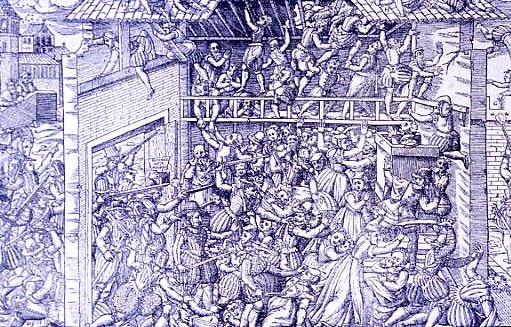 |
1562 |
|
|
1572 |
Henry III (king 1574-89) brother of Charles
War of 3 Henries
- Henry III has Henry Duke of Guise assassinated for plot
- Henry III assassinated
- Henry III’s heir and ally: Henry of Navarre (Bourbon, Protestant)
- Henry of Navarre converts: Henry IV (king 1589-1610)
Edict of Nantes 1598 (revoked 1685)
Confessional Map of Europe ca 1600
Confessional maps and some issues about them: Graeme Murdock
Spread of Humanist movement:
Church
Universities
- Foreign students at Italian universities who returned home
- faculty appointments at Paris, other French universities
- all faculties
- theology: Biblical scholarship, Greek and Hebrew studies
Courts
Ex: Francis I
Royal Library and its librarian: Guillaume Budé, ca. 1536 (portrait by Jean Clouet) 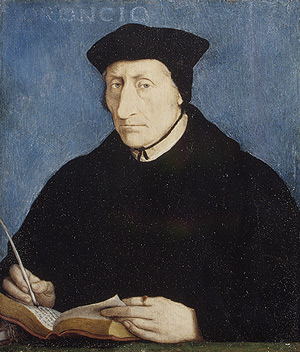
Collège royal 1530
Robert Estienne: Editio Regia (Greek New Testament with critical apparatus 1550)
Michel de Montaigne (1533-92)
humanist education: classical latin
1571 retires to study and write; began Essays, first set published 1580
1581-85 mayor of Bordeaux
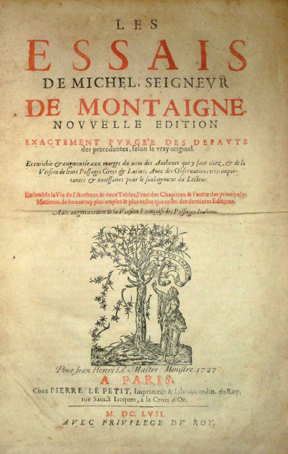 |
 |
Clouet: Charles IX as boy king

a page of Montaigne’s notes editing Essays



